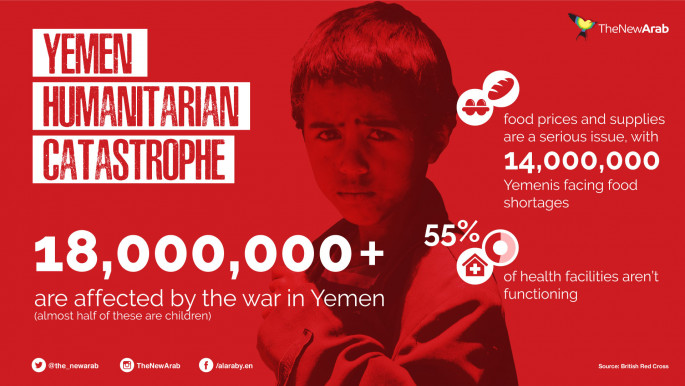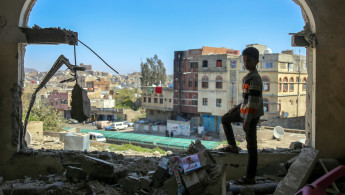Could Yemen's peace talks start in May?
A new round of peace talks between Yemen's warring sides should begin by the end of May, the UN mediator said on Wednesday, as alarm grows over the country's worsening humanitarian situation.
Negotiations are underway to stave off a feared military attack on the vital Red Sea port of Hodeida, what first step towards a ceasefire, the bloc's special Yemen envoy Ismail Ould Cheikh Ahmed told AFP.
Averting an attack on Hodeida - the main entry point for desperately needed aid to Yemen - could allow "a real cessation of hostilities and to go back to the talks", he said.
"We are at the preliminary stage, but time is also a real constraint for us, because my aim is to finish all of this before Ramadan," he said, adding that he hoped "to enter into a new round of talks before Ramadan".
The Muslim holy month of Ramadan is set to begin around 27 May this year.
Even if Ould Cheikh Ahmed manages to get the parties to the table, any success will be hard-won. Since Yemen's conflict escalated two years ago, all UN mediation attempts and seven declared ceasefires have failed.

Yemen's war has pitted pro-government forces against Houthi rebels and their allies - renegade troops loyal to former President Ali Abdullah Saleh.
A Saudi-led coalition intervened in Yemen in March 2015 to help the government retake the capital Sanaa and swathes of the country's north and west.
More than 10,000 people have been killed in the past two years of fighting, while the country has plunged into a deep humanitarian crisis and faces the imminent risk of famine.
'Major humanitarian consequences'
Hodeida is currently controlled by the Houthis, but fears are mounting over a potential coalition offensive.
The UN and other organisations have urged the Saudi-led coalition not to bomb Hodeida, Yemen's fourth most populated city, and a "major lifeline for a country on the verge of starvation".
"We believe that any military operation on Hodeida will have major humanitarian consequences and could lead to a very high level of civilian casualties," Ould Cheikh Ahmed said on Wednesday.
At the same time, he said, he was hearing concerns from the coalition that the port was being used to smuggle in weapons.
"We are trying to explore various options by which we can reinforce inspection mechanisms maybe or see how we can minimise the risk of any additional smuggling," he said.
 |
"We are witnessing the starving and the crippling of an entire generation. We must act now, to save lives" - UN Secretary-General Antonio Guterres |  |
The UN mediator said the Houthis had voiced interest in his proposals and that he aimed to invite them to a meeting in Oman next month to discuss different options.
"I'm a bit optimistic, (because) if we are able, as I am hoping, to stop the military operation in Hodeida, I think we are paving the way for new talks," he said, adding that the negotiations would likely be held in Geneva or Kuwait.
Meanwhile, nearly $1.1 billion was raised at a pledging event in Geneva to aid what the United Nations chief calls "the world's largest hunger crisis" in Yemen, where millions are in need of emergency support.
"We are witnessing the starving and the crippling of an entire generation. We must act now, to save lives," UN Secretary-General António Guterres said, with the bloc and aid groups warning of a devastating famine within months.





 Follow the Middle East's top stories in English at The New Arab on Google News
Follow the Middle East's top stories in English at The New Arab on Google News

![Israeli forces ordered bombed Gaza's Jabalia, ordering residents to leave [Getty]](/sites/default/files/styles/image_330x185/public/2176418030.jpeg?h=a5f2f23a&itok=_YGZaP1z)
